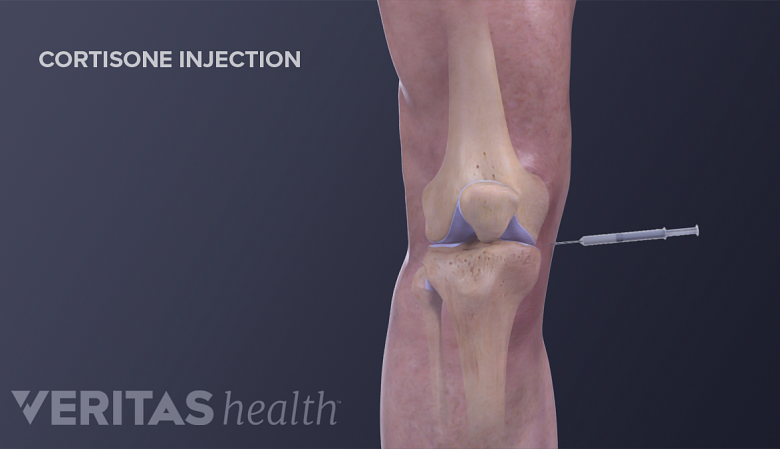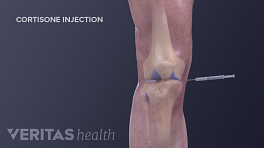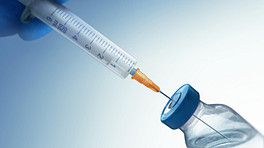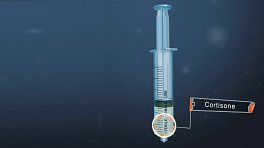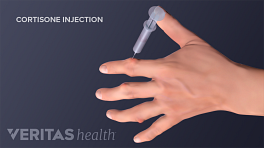A valuable tool in treating inflammation, cortisone is a man-made version of a natural hormone called cortisol. Cortisone is used to treat inflammatory conditions such as autoimmune diseases as well as joint swelling and pain.
Cortisone injections are a common treatment for inflammatory conditions such as knee osteoarthritis.
Both man-made cortisone and cortisol produced in the body are types of glucocorticosteroids. The terms glucocorticosteroids, corticosteroids, cortisone, and cortisol may be used interchangeably.
- Cortisol is produced by the body’s adrenal glands. In large quantities, cortisol suppresses the immune system's inflammatory and allergic responses.
- Cortisone medications mimic the action of cortisol but tend to be more powerful.
Corticosteroid medications come in a range of strengths. They also come in different forms, such as pills, liquids that can be injected directly into the body, and topical creams that can be applied to the skin.
Oral Cortisone Medications
People who have inflammatory disorders that affect the entire body, such as rheumatoid arthritis and ankylosing spondylitis, may treat painful flare-ups with oral corticosteroids, such as prednisone and methylprednisolone.
- Oral corticosteroids are fast-acting and often prescribed to newly diagnosed patients to help get their inflammation under control.
- Other medications, such as disease-modifying antirheumatic drugs (DMARDs) and biologics, are typically also prescribed but can take several weeks to work.
- Chronic oral steroid use can lead to complications. Doctors typically recommend tapering their use once the DMARDs, biologics, or other medications take effect.
See Biologics: Basic Facts for Patients
To avoid negative side effects, oral steroid use should be tapered under the guidance of a health care provider.
Topical Cortisone Medications
Skin inflammation may be treated with topical steroid medications, including creams, gels, foams, sprays, and patches.
- Over-the-counter hydrocortisone cream (e.g. Hydrocone-10) to treat bug bites and poison ivy.
- More powerful topical corticosteroids may be prescribed to treat conditions such as psoriasis, an inflammatory skin disorder associated with psoriatic arthritis.
- There are also cortisone mists, which are used to treat conditions such as asthma and sinusitis.
See Topical Pain Relief for Arthritis
Like oral corticosteroids, topical cortisone products can cause side effects. A doctor or pharmacist can talk to a patient about potential risks and side effects.
Cortisone Injections
Arthritic conditions can cause a joint to become inflamed, painful, and swollen. If the inflammation is chronic or is severely painful, a physician may recommend a cortisone injection. For example, cortisone may be used:
- During a gout flare-up that causes a toe to become so inflamed it is difficult to walk or bear weight on the foot
- Following the aspiration (draining of fluid) of an inflamed bursa, to help ensure bursitis symptoms go away and do not become chronic
- When rheumatoid arthritis causes persistent swelling in a single joint
- If osteoarthritis or tendonitis causes pain in a joint, and it cannot be successfully treated with other non-surgical methods
See Cortisone Injections (Steroid Injections)
An injection delivers potent medicine directly to the area of inflammation. Two examples of injectable cortisone are triamcinolone and betamethasone, each of which is sold under different brand names.
Corticosteroids Are Not the Same As Anabolic Steroids
Corticosteroids are different from anabolic steroids (such as testosterone) that are used to enhance male characteristics and improve athletic performance. Corticosteroids and anabolic steroids share similar chemical structures but play different roles in the body.
